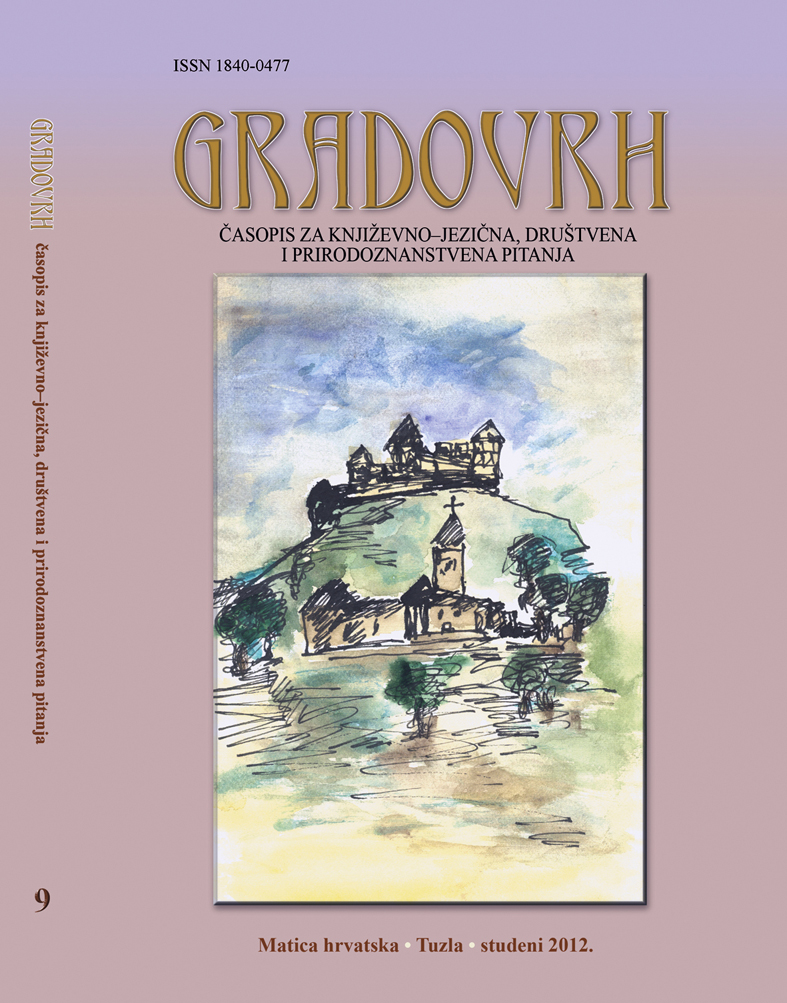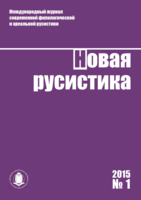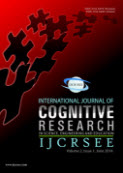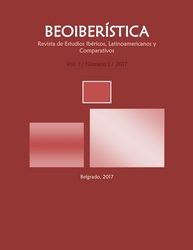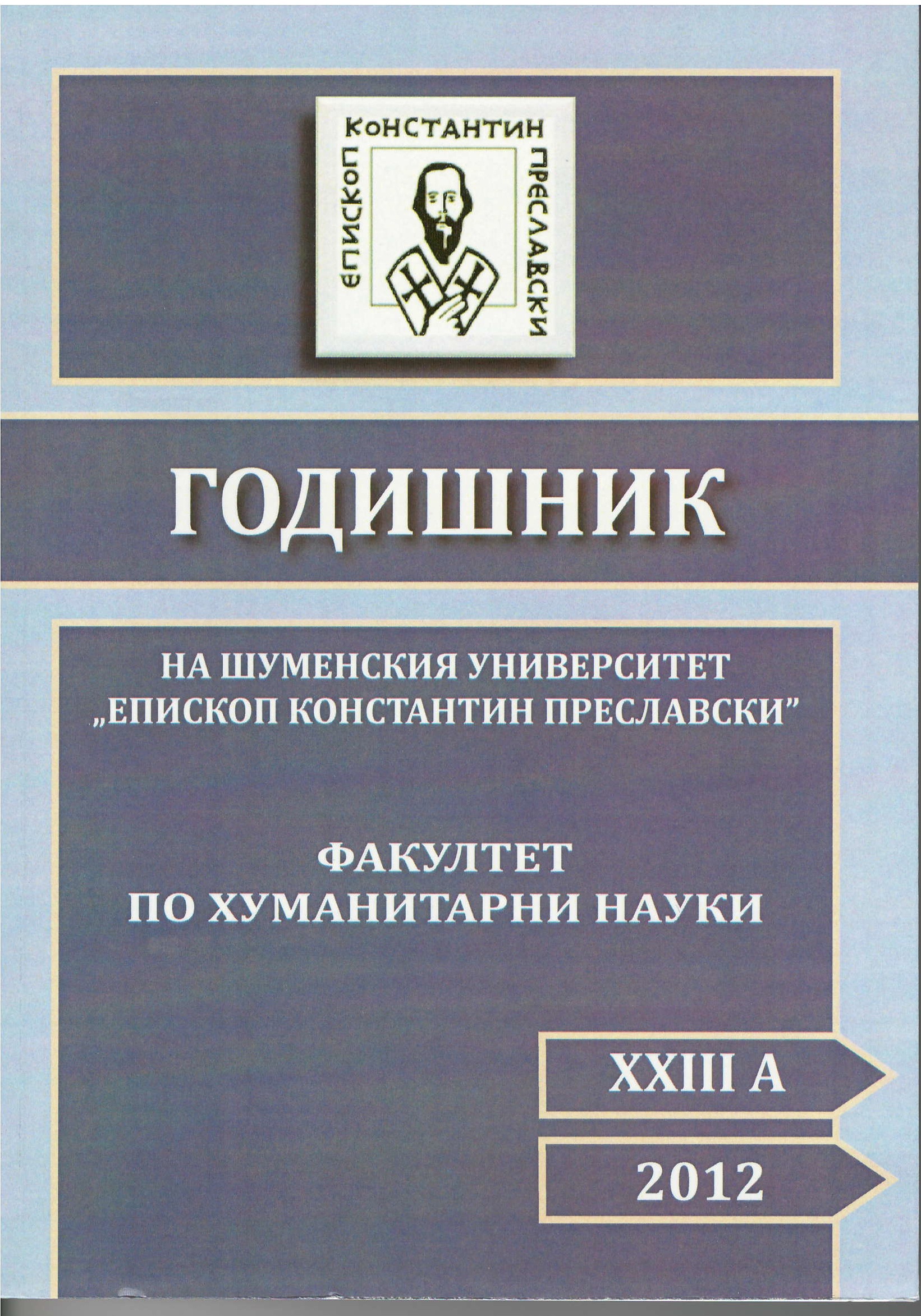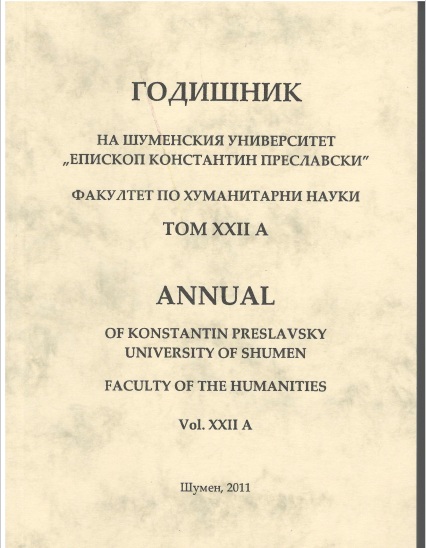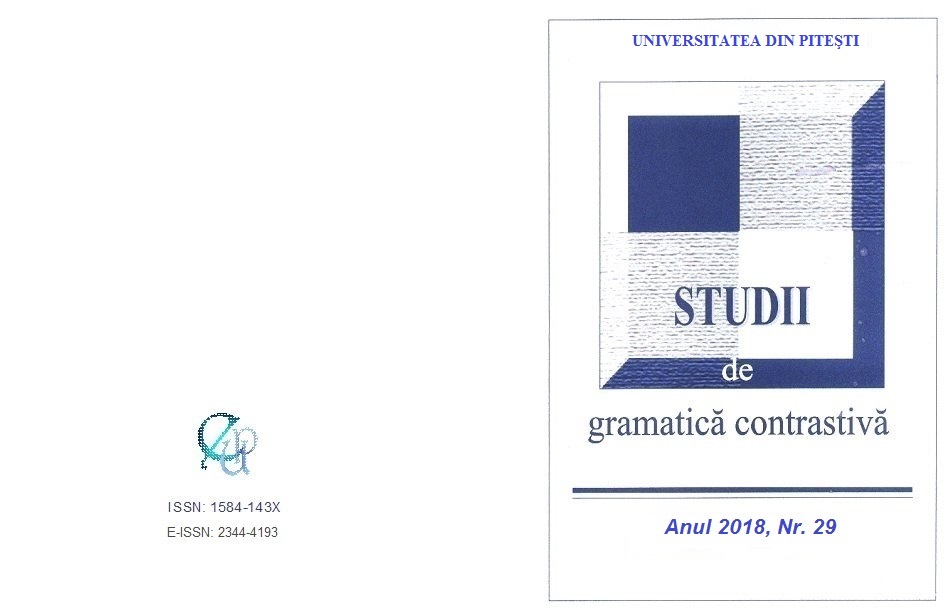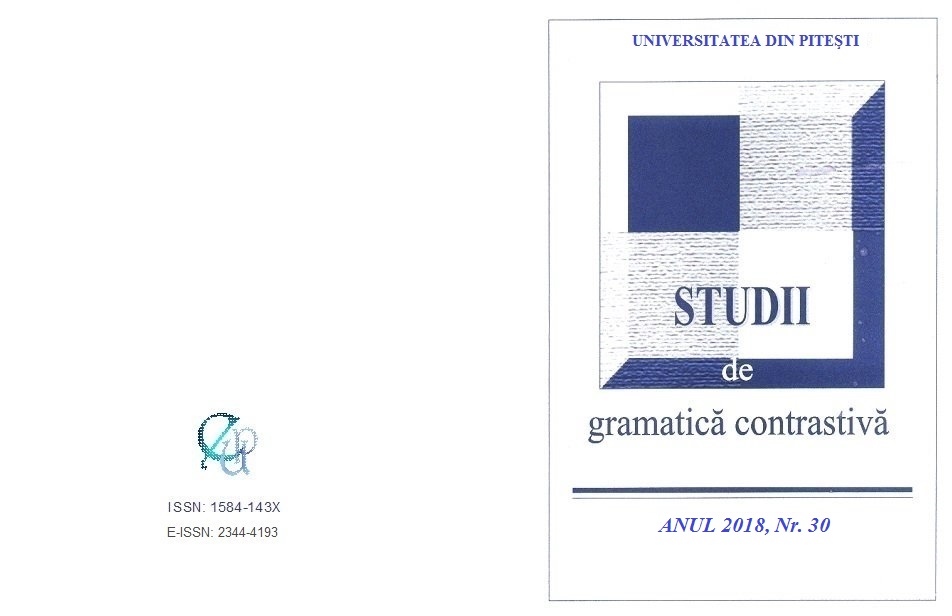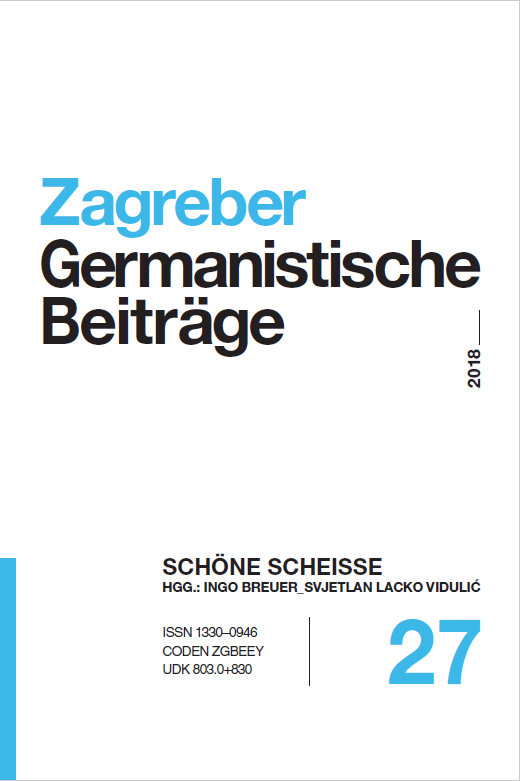Análisis contextual de expresiones idiomáticas con "boca" y sus equivalentes rumanos
The hereby paper aims at corroborating the information provided by lexicographical sources for a range of Spanish idioms including the word boca and their Romanian equivalents, by means of a contextual analysis model. The semantic behaviour will be analysed based on contexts found on the internet, and our approach will deal both with convergences and divergences, so that a clear assessment may be performed and pertinent conclusions may be drawn. Moreover, aspects such as positive or negative connotation, language levels, the type of subject or object the idiom can refer to in the two languages, etc. will be observed.
More...
